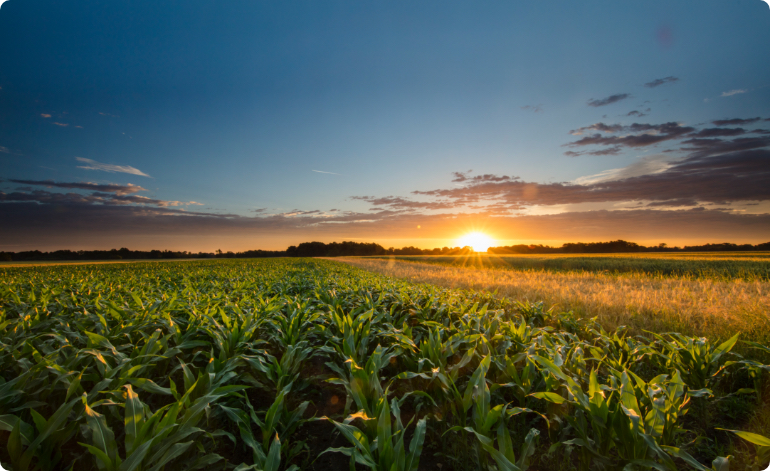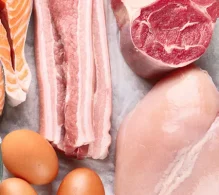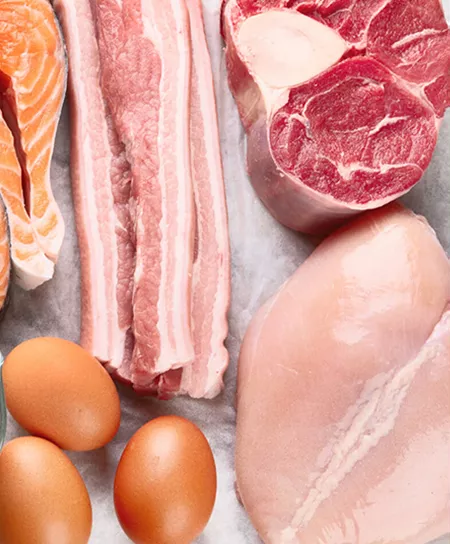I, along with most of you, was first made aware of the existential perils of climate change by Al Gore’s documentary, An Inconvenient Truth, in 2006. He clearly laid out the disastrous future ahead; with solutions being largely limited to curtailing the fossil fuel industries. No mention was made of the livestock industries’ contributions to global warming. Nor did his 2017 An Inconvenient Sequel provide enlightenment on the potential role of curtailing our predilection to meat-eating for saving our home. Mr. Gore’s vision may have been prevented from seeing the whole truth by his business connections with cattle farming, and his personal eating habits, causing him to wear a portly figure.
In 2006, the Food and Agriculture Organization of the United Nations, FAO, published a highly influential, nearly 400-page report, Livestock’s Long Shadow, finding that livestock’s contribution to GHG production to be nearly 18% of the total, while all transportation (buses, train, cars, planes, etc.) amounts to less than 14%. By including several additional factors, those underestimated by the FAO report, the WorldWatch Institute concluded three years later that livestock actually accounts for more than 51% of the GHG produced annually. (See: https://awellfedworld.org/wp-content/uploads/Livestock-Climate-Change-Anhang-Goodland.pdf). Although the problems created by an animal-based agriculture were well told by both of these fact-filled papers, no kitchen-based solutions were offered.
The EAT–Lancet Commission, considered to be the authoritative word on the subject of climate crises and diet, published their conclusions in 2019: The livestock industry is a major detriment to planetary survival; and that we have fewer than 12 years to take action before life on Earth becomes impossible. In March of 2020 the EAT-Lancet Commission reported that replacing beef, pork, and poultry with a plant-food-based diet reduced the GHG associated with people’s diets by up to 80%, depending on the type and degree of substitution (vegan being most effective). (Lancet Planet Health. (2020) Mar;4(3):e98-e106).
[*Further encouragement about the power of food comes from other scientific findings that changing from a standard Western diet to a vegan diet can cause a savings of 70–80% of GHG emissions and of land use, and 50% of water use. (PLoS One. 2016;11(11):e0165797.)
Unfortunately, The EAT-Lancet Commission’s conclusions are filled with irrational and unacceptable compromises, most egregiously, forgiving destructive behaviors by others. They write the recommended changes in diet are “quite flexible and allow for adaptation to dietary needs, personal preferences and cultural traditions.” Allowing for; “a modest amount of meat and dairy, and some added sugars and starchy vegetables.” “Vegetarian and vegan diets are two healthy options within the planet health diet but are personal choices… Meat and dairy constitute important parts of the diet but in significantly smaller proportions than whole grains, fruits, vegetables, nuts and legumes.” Consider, this respected assembly of authorities is acting contradictory by, on one hand, concluding livestock is killing people and the Planet, and at the same time making favorable statements about meat and dairy and justifying personal preferences; which are often greedy by nature.
Bill Gates is an example of a leader with great intentions, backed by power and money, falling short of effective solutions in part because of his inability to see beyond his own dinner plate. His newest book, “How to Avoid a Climate Disaster: The Solutions We Have and the Breakthroughs We Need,” insists that every possibility to save our home on Earth be seriously considered, and is in contrast to the messages from him delivered while eating beefburgers and praising his favorite Seattle-area restaurants, Dicks and Burgermaster. Gates was a vegetarian for a year but eventually returned to his carnivorous ways. Possibly his personal fears of life without meats, once alive or manufactured, have caused him to invest in “fake” meats. Bill Gates wants us to eat 100% synthetic beef, rather than to simply stop eating planet-destroying cows. Which seems easier, quicker, and most economical to you? Beef is 10 times more damaging to the environment than chicken, pork, or dairy foods, which are also unacceptable categories of animal foods, to be excluded for the recovery of a dying planet.
A Code Red warning was filed by IPCC (the Intergovernmental Panel on Climate Change) of the United Nations on August 9, 2021. Their cries for urgency were dripping with fear. “We must act decisively now to keep 1.5 (degrees warming in C°) alive…If we combine forces now, we can avert climate catastrophe…there is no time for delay and no room for excuses…The solutions are clear.” Unfortunately, this report left one big solution out. UN Chief Antonio Guterres talked volumes about reducing fossil fuels, but not a word about the changes in people’s diets that are necessary (not an option) to save the planet.
Historically, the wealthy class was limited to only a few members; the king’s personal court. At the other end of the spectrum were the masses, the working populations, who obtained the bulk of their calories from beans, corn, potatoes, rice, and/or wheat with a few fruits and vegetables. These people were strong, fit, and healthy (as long as they had enough food). With the Industrial Revolution and the harnessing of fossil fuels in the mid-1800s, wealth came to common folks; followed by a shift to very rich meals (the kind once reserved for the privileged few); and as expected, diseases of affluency quickly became epidemics, and now they are worldwide pandemics.
The connection between diet and climate change has been made at many levels as seen by the above. We, John and Mary McDougall, can fulfill the practical side for the solution with our knowledge of diet-therapy.
I, along with most of you, was first made aware of the existential perils of climate change by Al Gore’s documentary, An Inconvenient Truth, in 2006. He clearly laid out the disastrous future ahead; with solutions being largely limited to curtailing the fossil fuel industries. No mention was made of the livestock industries’ contributions to global warming. Nor did his 2017 An Inconvenient Sequel provide enlightenment on the potential role of curtailing our predilection to meat-eating for saving our home. Mr. Gore’s vision may have been prevented from seeing the whole truth by his business connections with cattle farming, and his personal eating habits, causing him to wear a portly figure.
In 2006, the Food and Agriculture Organization of the United Nations, FAO, published a highly influential, nearly 400-page report, Livestock’s Long Shadow, finding that livestock’s contribution to GHG production to be nearly 18% of the total, while all transportation (buses, train, cars, planes, etc.) amounts to less than 14%. By including several additional factors, those underestimated by the FAO report, the WorldWatch Institute concluded three years later that livestock actually accounts for more than 51% of the GHG produced annually. (See: https://awellfedworld.org/wp-content/uploads/Livestock-Climate-Change-Anhang-Goodland.pdf). Although the problems created by an animal-based agriculture were well told by both of these fact-filled papers, no kitchen-based solutions were offered.
The EAT–Lancet Commission, considered to be the authoritative word on the subject of climate crises and diet, published their conclusions in 2019: The livestock industry is a major detriment to planetary survival; and that we have fewer than 12 years to take action before life on Earth becomes impossible. In March of 2020 the EAT-Lancet Commission reported that replacing beef, pork, and poultry with a plant-food-based diet reduced the GHG associated with people’s diets by up to 80%, depending on the type and degree of substitution (vegan being most effective). (Lancet Planet Health. (2020) Mar;4(3):e98-e106).
[*Further encouragement about the power of food comes from other scientific findings that changing from a standard Western diet to a vegan diet can cause a savings of 70–80% of GHG emissions and of land use, and 50% of water use. (PLoS One. 2016;11(11):e0165797.)
Unfortunately, The EAT-Lancet Commission’s conclusions are filled with irrational and unacceptable compromises, most egregiously, forgiving destructive behaviors by others. They write the recommended changes in diet are “quite flexible and allow for adaptation to dietary needs, personal preferences and cultural traditions.” Allowing for; “a modest amount of meat and dairy, and some added sugars and starchy vegetables.” “Vegetarian and vegan diets are two healthy options within the planet health diet but are personal choices… Meat and dairy constitute important parts of the diet but in significantly smaller proportions than whole grains, fruits, vegetables, nuts and legumes.” Consider, this respected assembly of authorities is acting contradictory by, on one hand, concluding livestock is killing people and the Planet, and at the same time making favorable statements about meat and dairy and justifying personal preferences; which are often greedy by nature.
Bill Gates is an example of a leader with great intentions, backed by power and money, falling short of effective solutions in part because of his inability to see beyond his own dinner plate. His newest book, “How to Avoid a Climate Disaster: The Solutions We Have and the Breakthroughs We Need,” insists that every possibility to save our home on Earth be seriously considered, and is in contrast to the messages from him delivered while eating beefburgers and praising his favorite Seattle-area restaurants, Dicks and Burgermaster. Gates was a vegetarian for a year but eventually returned to his carnivorous ways. Possibly his personal fears of life without meats, once alive or manufactured, have caused him to invest in “fake” meats. Bill Gates wants us to eat 100% synthetic beef, rather than to simply stop eating planet-destroying cows. Which seems easier, quicker, and most economical to you? Beef is 10 times more damaging to the environment than chicken, pork, or dairy foods, which are also unacceptable categories of animal foods, to be excluded for the recovery of a dying planet.
A Code Red warning was filed by IPCC (the Intergovernmental Panel on Climate Change) of the United Nations on August 9, 2021. Their cries for urgency were dripping with fear. “We must act decisively now to keep 1.5 (degrees warming in C°) alive…If we combine forces now, we can avert climate catastrophe…there is no time for delay and no room for excuses…The solutions are clear.” Unfortunately, this report left one big solution out. UN Chief Antonio Guterres talked volumes about reducing fossil fuels, but not a word about the changes in people’s diets that are necessary (not an option) to save the planet.
Historically, the wealthy class was limited to only a few members; the king’s personal court. At the other end of the spectrum were the masses, the working populations, who obtained the bulk of their calories from beans, corn, potatoes, rice, and/or wheat with a few fruits and vegetables. These people were strong, fit, and healthy (as long as they had enough food). With the Industrial Revolution and the harnessing of fossil fuels in the mid-1800s, wealth came to common folks; followed by a shift to very rich meals (the kind once reserved for the privileged few); and as expected, diseases of affluency quickly became epidemics, and now they are worldwide pandemics.
The connection between diet and climate change has been made at many levels as seen by the above. We, John and Mary McDougall, can fulfill the practical side for the solution with our knowledge of diet-therapy.




